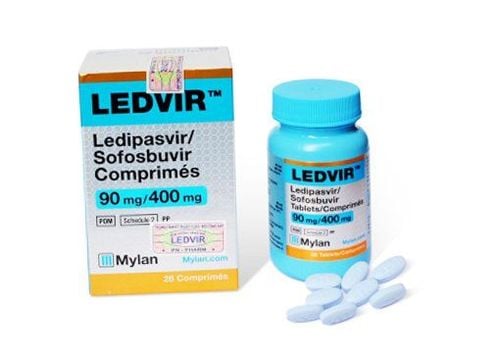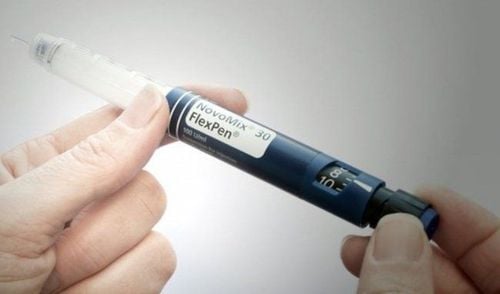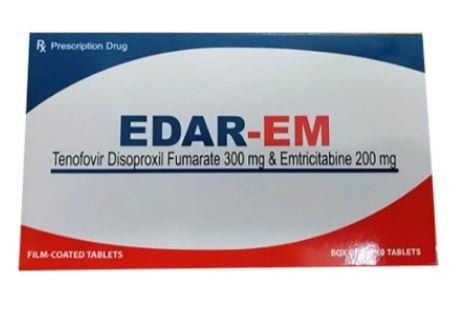This is an automatically translated article.
Immunodeficiency is when the body is reduced or completely unable to resist the attack of foreign pathogens. Since then, the body is very susceptible to infections with more severe severity than normal people or even life-threatening.
1. What is a weakened immune system?
The immune system is a collection of white blood cells, lymphocytes in the blood, lymph nodes, bone marrow and spleen that have the same job of protecting the body from invading germs. The most distributed location of the immune system is in the "inputs" of the body, especially the respiratory and digestive tracts.
By producing antibodies or self-destructing by destroying enzymes, phagocytosis, invading agents from outside such as viruses, bacteria, fungi and parasites will be localized and destroyed. cannot cause disease. Whatever causes the immune system to be damaged, it is no longer able to guarantee this function, which is called the immunodeficiency syndrome.
In adults, the immune system is built and strengthened through illness by the principle of "remembering". After creating the right antibody to successfully destroy an antigen, the body will remember it and use it for the next time that agent is re-entered. This mechanism is called “active immunity”.
In infants, the temporary immune system in the first days of life is inherited by the line of antibodies received from breast milk. This mechanism is called "passive immunity". Antibodies will decline very quickly after the month, when the baby starts to wean. Therefore, after this time, babies often get infections and this is an "opportunity" to build their own active immune system. However, for some strains of bacteria with high toxicity, causing serious illness, parents need to "actively" prevent their children by vaccination.
Therefore, when the body is immunocompromised, the defense and defense system is no longer available, losing the ability to capture and fight off, the body is very susceptible to infection by infectious agents. At this time, the infection is often prolonged or repeated. In the long term, the anatomical structures or physiological functions of the organ systems are also affected, reducing vital activities.
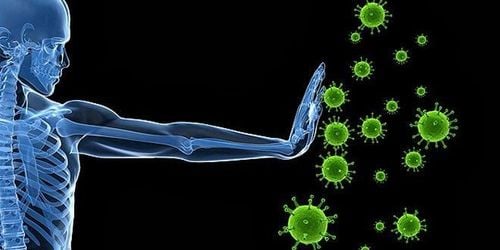
Các tác nhân xâm nhập từ bên ngoài vào như virus, vi khuẩn, nấm và kí sinh trùng sẽ bị hệ miễn dịch tiêu diệt, không gây ra bệnh được
2. What are the causes of a weakened immune system?
Immunodeficiency syndrome can occur at any age with many different mechanisms. In general, this syndrome can be divided into two groups of causes: (1) Deficiency of the innate immune system and (2) Deficiency of the acquired immune system.
2.1. Deficiency of the innate immune system
Genetic disorders: Abnormalities in the genome inherited from a parent with a weakened immune system also make the child born to be more susceptible to infections than children born to normal parents. Disorders in the production of immune cells such as B-cell deficiency disease, T-cell deficiency, combined deficiency of both B- and T-cell types, phagocytic defects, complement deficiency , hypogammaglobulinemia... and unspecified (idiopathic).
2.2. Acquired immune system deficiency
HIV/AIDS infection: Unlike other viruses, HIV chooses to parasitic and cause direct damage to the human immune system. The number of immune cells is severely reduced, the body cannot fight off infections that seem to be very mild, so it is easy to become exhausted and die. Using corticosteroids, anti-rejection drugs, cancer chemotherapy drugs: These drugs inhibit the activity of immune cells as well as their ability to trigger a response against the inflammatory process. Diabetes: Persistent hyperglycemia or poorly controlled diabetes is a predisposing factor for prolonged infection. Nephrotic syndrome , after splenectomy, malnutrition, exhaustion: These are conditions that severely reduce the number of immune cells in the blood, with the mechanism not being produced, producing insufficient numbers. quality, ineffective, not functional or lost out.
3. Manifestations of weakened immune system like?
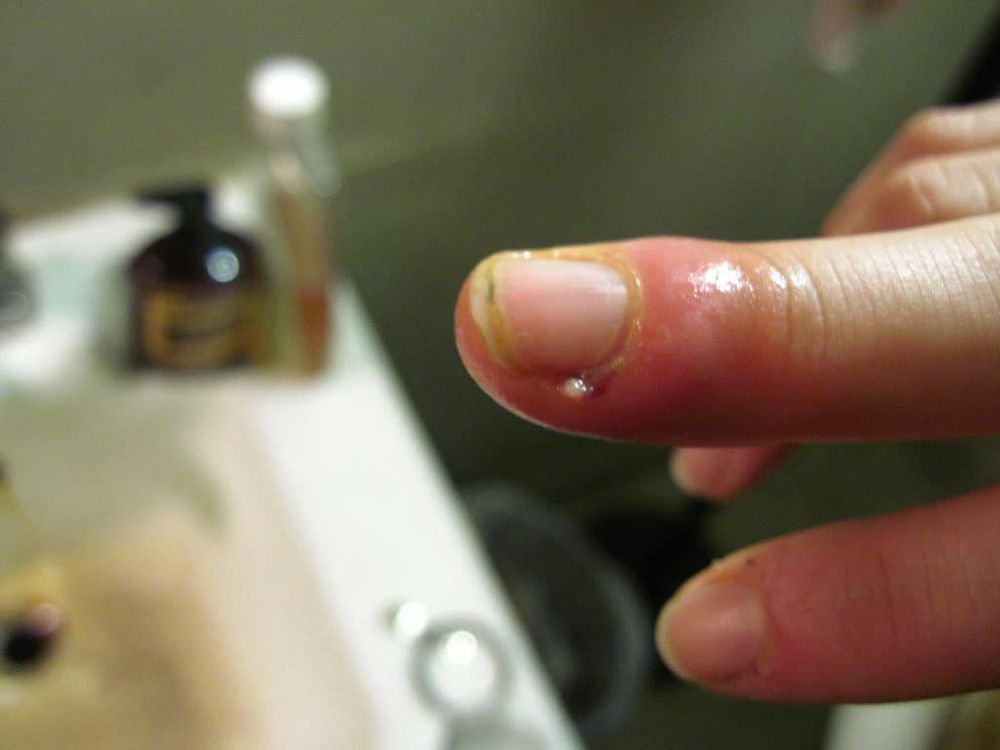
Nhiễm trùng là biểu hiện nổi bật nhất của hội chứng suy giảm hệ miễn dịch
Infection is the most prominent manifestation of Immune Deficiency Syndrome. Because this is the basic function of the immune system that is no longer maintained. The characteristics of infections in immunocompromised individuals that are different from those in the general population are higher frequency, shorter incubation period, longer duration of symptoms, and greater severity.
Infection can occur in any organ system and sometimes occurs in multiple organ systems at the same time, easily causing the body to collapse quickly. Symptoms of infection by organ system are:
Respiratory system: high fever, shortness of breath, chest pain, wheezing, prolonged cough with sputum... Cardiovascular system: chest pain, shortness of breath when lying with the head low or during exertion, nervousness, heart palpitations... Digestive system: diarrhea, live stools, bloody stools, abdominal pain, nausea - vomiting... Excretory system: painful urination, cloudy urine, purulent urine , lower back pain, hip pain... Nervous system: lethargy, slowness, weakness in limbs, convulsions, coma... Skin: skin lesions, blisters, ulcers, pus discharge. .. In addition, the prolonged infection makes the patient pale, anemic, swollen lymph nodes all over the body, tired, thin, exhausted, unable to live and take care of themselves. If the condition is not controlled, the infection causes organ failure and eventually death.
4. What to do when the immune system is weakened?
When the body is infected with the above characteristics, it is necessary to suspect immunodeficiency syndrome. At this time, patients must be taken to specialized medical care centers for timely examination and treatment.
Not only that, subjects with congenital immunodeficiency syndrome or diseases that easily lead to acquired immunodeficiency should proactively seek medical attention as soon as infection is suspected.
At this point, the use of antibiotics is mandatory. The doctor will prescribe the appropriate antibiotic, high dose and intravenous route to quickly reach the therapeutic concentration in the blood. Sometimes it is necessary to combine two or more classes of antibiotics at the same time, with different mechanisms to destroy the bacterial strains.
The duration of antibiotic treatment in immunocompromised subjects is also longer than in the general population. Pay attention to closely monitor, change antibiotics early when noticing any effect or showing signs of resistance. The decision to stop having twins can sometimes be difficult because of the fear of a resurgence of the infection.
In addition, patients are also treated with supportive care such as ensuring adequate nutrition, energy, rehydration and electrolytes, body hygiene and reasonable rest. All living and healing activities of these subjects need to take place in a clean, ideally sterile environment to limit the possibility of superinfection. Food, air source, and patient clothing are also thoroughly checked through many steps before reaching the user. Only when doing so can one hope to completely destroy germs and restore health.
However, the most necessary thing is always to prevent infection. Patients with immunodeficiency are asked to live in an isolated room with fresh space, eat cooked food, drink boiling water, limit contact with strangers or the outside environment, crowded places.

Việc làm cần thiết nhất là phòng ngừa xảy ra nhiễm trùng
The diet needs a variety of ingredients to strengthen the child's immune system such as iron, zinc, vitamins A, C, D and prebiotics to encourage beneficial bacteria for the gut. Drink enough water, drink fruit juices to add vitamins and minerals. Thorough body hygiene, clean hands, wear a mask when sneezing. Before splenectomy, it is important to be vaccinated with all necessary vaccines. It is important to have safe sex to avoid infecting yourself and your partner.
Besides, on immunocompromised patients, if the treatment of the infection is not completely guaranteed with the "weapon" of antibiotics, it is possible to strengthen the immune system with biological products such as immunoglobulins. , Interferon gamma treatment, various types of leukocyte growth factors...
These preparations are inherently a component of the immune system, extracted from animal origin and infused into the patient's body for temporary purposes. resistance enhancement. In terms of long-term effects, scientists are gradually studying stem cell transplants and gene therapy with the hope of achieving much success in the future.
Vinmec International General Hospital is one of the hospitals that not only ensures professional quality with a team of leading medical doctors, modern equipment and technology, but also stands out for its examination and consultation services. comprehensive and professional medical consultation and treatment; civilized, polite, safe and sterile medical examination and treatment space.
Please dial HOTLINE for more information or register for an appointment HERE. Download MyVinmec app to make appointments faster and to manage your bookings easily.




